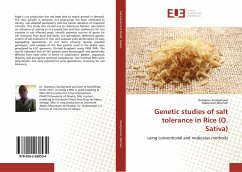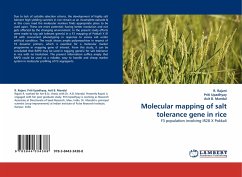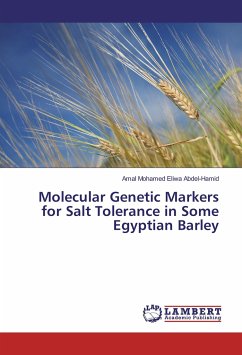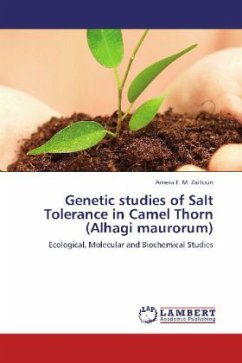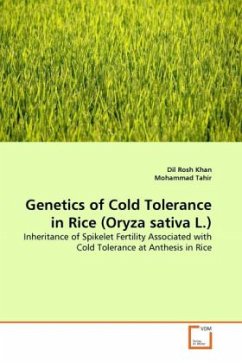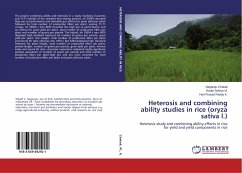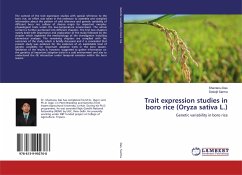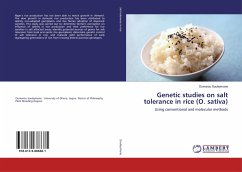
Genetic studies on salt tolerance in rice (O. sativa)
Using conventional and molecular methods
Versandkostenfrei!
Versandfertig in 6-10 Tagen
51,99 €
inkl. MwSt.

PAYBACK Punkte
26 °P sammeln!
Niger's rice production has not been able to match growth in demand. The slow growth in domestic rice production has been attributed to salinity, non-adapted germplasm, and low farmer adoption of improved varieties. This study was carried out to: determine farmers' perception on influence of salinity in rice production and their preference for rice varieties in salt affected areas; identify potential sources of genes for salt tolerance from local and exotic rice germplasm; determine genetic control of salt tolerance in rice; and evaluate yield performance of early segregating generations of ri...
Niger's rice production has not been able to match growth in demand. The slow growth in domestic rice production has been attributed to salinity, non-adapted germplasm, and low farmer adoption of improved varieties. This study was carried out to: determine farmers' perception on influence of salinity in rice production and their preference for rice varieties in salt affected areas; identify potential sources of genes for salt tolerance from local and exotic rice germplasm; determine genetic control of salt tolerance in rice; and evaluate yield performance of early segregating generations of rice from crossing diverse parental genotypes.



